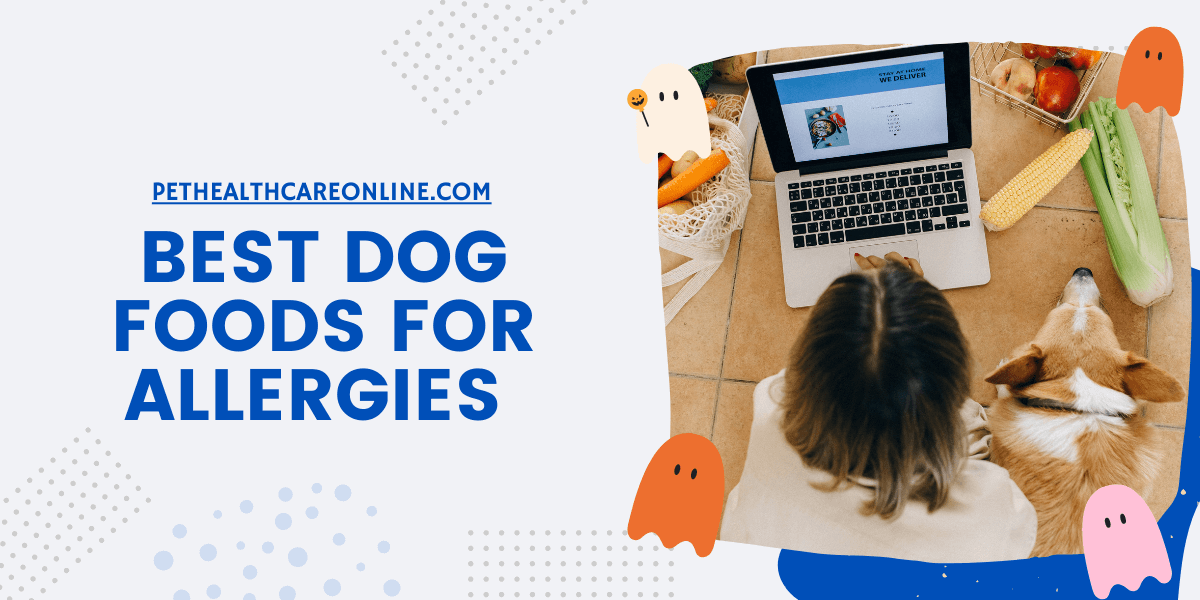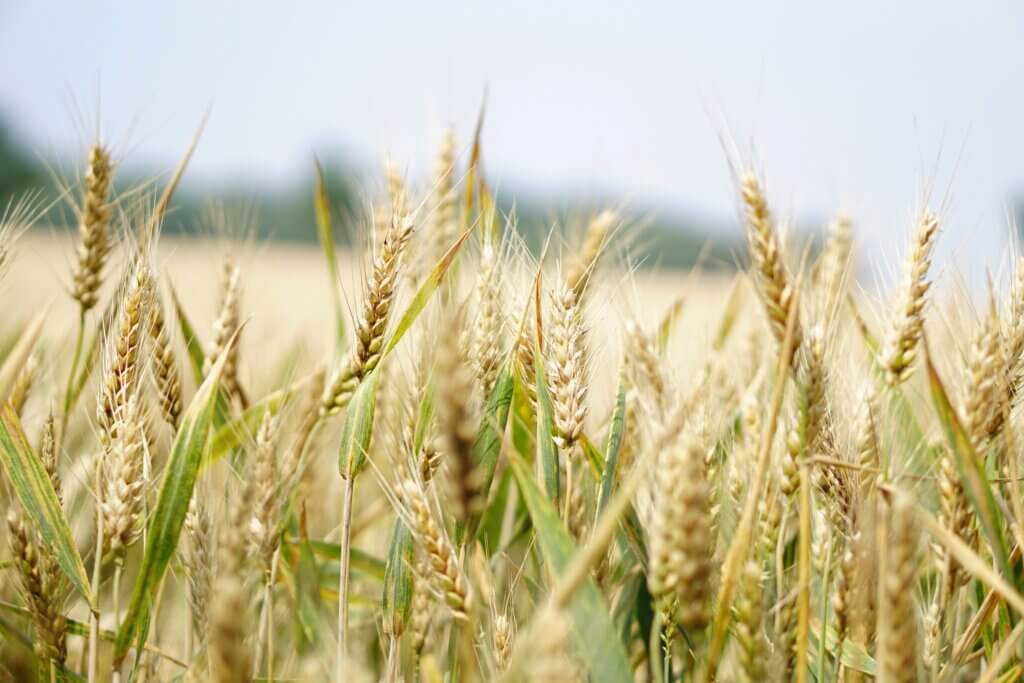Over the course of a dog’s life, they might experience various health issues and complications. One of the more common ones is a food allergy.
Food allergies can happen because of various causes and can produce different symptoms. They also call for unique therapies and customized diet choices. Read on to find out more on best dog foods for allergies!
Signs & Symptoms of Food Allergies in Dogs
The most common clinical signs that a dog with a food allergy can experience are listed below:
- Gastrointestinal distress in the form of vomiting or diarrhea
- Abdominal pain
- General itchiness
- Hives
- Skin and ear infections
- A lack of energy
Naturally, these symptoms can differ from one dog to the next depending on several other factors, such as the dog’s age, their health status, how often they have the food that triggers the allergy and others.
Dogs that are fed the same diet time and again will experience recurring signs of a food allergy.
This is one of the reasons why food allergies affect seniors more than they do adults and puppies – as these categories have been receiving the same kibble or canned varieties sometimes for years and years on end.
Common Causes of Food Allergies in Dogs
A true food allergy can only be caused by an ingredient in the dog’s diet.
And while the symptoms of this health condition might be somewhat common to skin allergies caused by external parasites, stress, hormonal imbalances, and others, the dog improves only when their diet is changed.
As per BMC Veterinary Research, the most common food allergen sources are the following:
- Beef (over 30% of cases)
- Dairy products (over 15% of cases)
- Chicken (approximately 15% of cases)
- Wheat (more than 10% of cases)
Other allergens range from soy, rice, and corn to egg, lamb, pork, and fish. Out of all animal protein sources, fish actually stands at just 2% out of all of the cases in the study, which means that it is the least likely to lead to a food allergy in dogs.
Although it might seem more or less unusual, some dogs are even allergic to tomatoes or kidney beans.
Consequently, food allergies are very individual and sometimes depend on what the dog has received as food on a regular basis or the sources the food comes from.
How to Shop for Food for Dogs with Allergies
The best type of dog food for allergies should tick a few important boxes.
First of all, if you’ve gone to the vet and they have performed an elimination test and have clearly determined that your pet is allergic to a specific type of ingredient in their food, it goes without saying that you need to change their diet.
However, to prevent digestive disturbances, it’s recommended that you do so gradually. Replace 10 to 20% of your dog’s old food with the new one until you fully switch to the new diet.
It would be great if the new kibble or canned varieties were free of artificial colors, preservatives, flavors, and any other types of chemicals. Sometimes, dogs are allergic to these substances, too.
Another important aspect to consider is that one type of dog food might not be similar to another.
Even if, in theory, they are made with the same types of protein, they might differ in terms of ingredient source (some might contain meat by-products instead of meat, for example) or fillers (some might contain wheat, whereas others might contain lentils or pumpkin).
The purer the dog diet, the better for your pet. Homemade recipes can be a solution if your dog is not responding to any commercial switch. Contact your veterinarian for more information on that.
Healthy Types of Dog Food That Are Best for Allergies: Exploring The Best Options
Some of the highest recommended diets for dogs with food allergies are as natural as possible.
Based on our research, a few good examples are the following:
- Ollie Dog Food
- Yumwoof Natural Pet Food
- TruDog by TruPet LLC
- JustFoodForDogs
All of these do not contain artificial flavors, non-nutritional additives, or preservatives. In fact, some of the recipes are specifically crafted for dogs with sensitivities and allergies.
But since the price of some of these alternatives can be a little constraining for some pet owners, we recommend checking your local or online pet shop for the best natural dog diets.
You’d be surprised, but there are quite a few options online and offline that come from local dog food manufacturers that do not use bad ingredients in their recipes.
Plus, you’ll find that these mom-and-pop shops don’t even use wheat or other types of grains as fillers, opting for the healthier choice — pumpkin.
Best Hypoallergenic Dog Foods: Helping Allergy-Prone Dogs
The term ‘hypoallergenic’ is a rather generic one, as it should apply specifically to the kind of allergy that your dog has.
For example, if your pet has a food allergy to chicken, your vet might recommend a diet made from protein sources like lamb or salmon.
On the contrary, if your dog has a severe allergy to soy, you will need to go out of your way to find the best diet that you can afford that doesn’t contain any soy at all.
It can take up to two weeks for pet parents to see the results of switching their diets to a new one, so you need to be equipped with some patience.
If the symptoms that your pup is experiencing are skin-related, get primary treatment for the lesions that they might have inflicted on themselves due to itchiness. You can give them calming baths with hypoallergenic shampoos (such as those containing oatmeal or aloe vera, for instance) once a week if that’s what’s necessary.
If your dog also has a lot of fleas, try to opt for natural alternatives – although these flea killers are less aggressive to the parasites, they are also less aggressive to your dog’s skin. Use a flea comb or a shampoo/powder made from natural pyrethrins extracted from plants, for example.
As for digestive imbalances, if your dog is healthy and you switch their diet to a hypoallergenic one, you’ll be surprised at how much of a difference that can make.
Symptoms can subside in a matter of a couple of days for some pets, whereas others might improve after you’ve also given them some probiotics or some pumpkin for healthy fiber.
Best Dog Foods for Senior Dogs with Allergies
Choosing the best dog food for a geriatric dog that also has an allergy can be a little more complicated.
You need to be in constant contact with your veterinarian, especially if your pet has a chronic condition for which they receive medication every day.
Some of the drugs that basically allow dogs to live more these days can have side effects themselves, so the pets might not feel their best because of them, too.
Ideally, you should find a diet that is both for aging dogs or those that are older than the age of 7 (so that they can be considered seniors) and one that contains a novel protein.
If your pet is allergic to most commercially used proteins, such as chicken, beef, pork, and lamb, you might need to choose foods containing fish, duck, turkey, ostrich, bison, rabbit, and others. They might seem exotic, but they do offer good results, and they’re very digestible, too.
Best Dog Foods for Skin Allergies
While skin allergies can be caused by proteins, too, they are more often than not caused by grains.
Although dogs can be considered omnivores compared to obligate carnivores such as cats, they’re not genetically engineered to eat wheat, corn, and other grain types.
Some dogs respond quite well to having their diet replaced with one that contains potatoes, pumpkin, or even legumes in some cases.
Try to vary between the fiber sources as much as possible.
Best Dog Foods for Wheat Allergies
Most dog diets that have starchy ingredients such as potatoes, sweet potatoes, or other vegetables make good replacements for wheat-rich dog diets.
Dogs that have an allergy to wheat can experience symptoms such as itchy skin or ears, bloating, vomiting, diarrhea, and constant licking of their front paws.
Your veterinarian will recommend a type of diet that you might find suitable, as well, but do consider that big brand names don’t necessarily make the best diets — even if they claim to.
More often than not, these companies will remove some of the allergens in their recipes, but they’ll still keep potential carcinogens such as artificial dyes on the list of ingredients.
Best Dog Foods for Chicken Allergies
Chicken is by far the most widely used ingredient when it comes to manufacturing pet food, whether for dogs or cats.
Yes, chicken is cheap, but chicken by-product is even more inexpensive (that refers to bones, cartilage, beaks, and other things you’d essentially not want to feed your dog). So, if you’re on a budget and you’re getting a chicken kibble variety for your pup, that is what you will be putting into their bowl.
Because chicken is so prevalent in pet foods, it’s at the root of most food allergies in this species. If you feed chicken to your dog day in and day out for years, they will develop a sensitivity or allergy to it.
The best dog foods for chicken allergies are listed below:
- Fish (mostly salmon)
- Lamb
- Venison
- Crocodile meat
- Kangaroo meat
- Camel
- Beaver
- Ostrich
What is the difference between a food intolerance and a food allergy in dogs?
The main difference between these two is the way the dog’s immune system responds to each of them.
A food allergy is primarily caused by a protein source, but the immune system gets involved and causes the symptoms.
A food intolerance mainly acts on its own without involving the immune system at all.
Unfortunately, these two can produce similar clinical signs.
Regardless of the cause or the clinical picture, an elimination diet is often the best treatment for both of these health complications. For some dogs, it can offer great results in a couple of dogs, while for others, it can take a minimum of 9 weeks and a maximum of 30.






